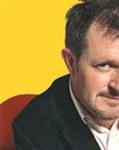The results of the 2011 MTN Radio Awards should reveal the delicate balance in radio.
After I had mailed the results of my judging for this year's MTN Radio Awards, sadly shaking my head as I did so, the first thing I did was send an email off to fellow judge Anthony Duke - it was time to do some grovelling. I am not one to grovel, but I do believe in admitting whenever I am wrong, and my mail to him was headed "you were right".
Just under a year ago, I posted an article here on Bizcommunity.com titled "Something's rotten in the state of radio". It was my interpretation of the results of the inaugural 2010 MTN Radio Awards. Briefly, I suggested the outcome of the awards reflected a possible bias towards those stations with which the judges were most familiar, because stations based in Johannesburg and Cape Town (where most of the judges lived) generally scored the most awards.
Two unexpected outcomes
My article secured two unexpected outcomes: an invite to judge this year's MTN Radio Awards and a stinging rebuttal from Duke, another radio old-schooler, and someone I've always admired.
His response in the comment section was sagacious and straightforward: the results had nothing to do with where the judges lived; it was just that the quality of the entries left a lot to be desired (in fact he used the word "sucked") and that many stations didn't even bother to submit any entries.
And so it was, with Duke's brutal summation of the state of South African radio still ringing in my head, that I sat down to judge entries in three categories for this year's MTN Radio Awards. The judging criteria were detailed and unyielding, as they indeed had to be. We were looking for the absolute best in their class and so there was no room for mediocrity. It was, I thought, going to be straightforward.
Well, it wasn't, because I struggled to find anything remotely exciting. There was a lot of really good radio, but very little remarkable radio. As someone who is passionate about innovation and empowering promising radio talent, I was not only looking for someone who ticked all the boxes but also for the next generation of radio's leaders: those who offered something new.
Hidden, as expected and hoped
I found them, hidden, as I expected and hoped, among the entries from community radio stations. I will not go into details as the results of the judging still have to be collated and adjudicated, but there were nuggets of experimentation and creativity, and I hope sufficient encouragement from the outcomes of the awards will be offered to these promising young stars.
Where my greatest disappointment emerged was in the level of creativity amongst the bigger players. These are the stations and radio groups that the smaller stations and community stations look up to for guidance and inspiration. Sure, they ticked the boxes and should be patted on the back for doing so, but they were so rooted in format that they didn't offer much that was new; and this is my greatest concern.
Any industry that interacts directly with consumers is influenced by trends and changes in patterns of social behaviour. As such, it needs to innovate. Take the seemingly uncreative fast-food industry for example: McDonalds may be synonymous with burgers, but its current offering is very different to what it was, say, five years ago.
Radio is no different. It may, for the most part, be synonymous with offering music-based content, but as a creative industry its current offering needs to be remarkably different to what it was, say, five years ago - and the people responsible for driving this innovation are the creators of content, their management, and the big decision-makers at board level.
Need to be brave
These people need to be brave. Innovation in radio may be critical, but it's not easy. As an example I would like to use Mark Gillman.
When Gillman was introduced to a national radio market as the host of 5FM's Breakfast Show, his predecessor Alex Jay, himself a respected innovator and shaper of radio, remarked excitedly that Gillman was going to "blow your mind"; and he did. He didn't break format; he obliterated it.
Gillman was, for a while, my direct competitor, and I envied his permission to experiment. I also grudgingly admired his capacity to try anything but, more importantly, I respected his contribution to the growth of radio.
Unfortunately, he didn't last long. It was nothing to do with him; it was a result of a failure to manage him correctly, to give him direction and provide the necessary discipline. It's something that infuriates me to this day, because it retarded the industry's opportunity to grow.
Growth is all about balance
It also proved that growth is all about balance; specifically, balancing the business and creative imperatives, and the associated risks. I will expand on this in the second part of this article and present a model that will provide the industry's decision-makers with an insight as to how to measure this balance.
In the meantime the 2011 MTN Radio Awards are just around the corner. Let's hope I'm wrong again and that perhaps my expectations were just a little too high or maybe just a little too soon.
We'll soon find out.















































![The delicate balance in radio [part 1]](https://biz-file.com/c/1103/68897.jpg)

